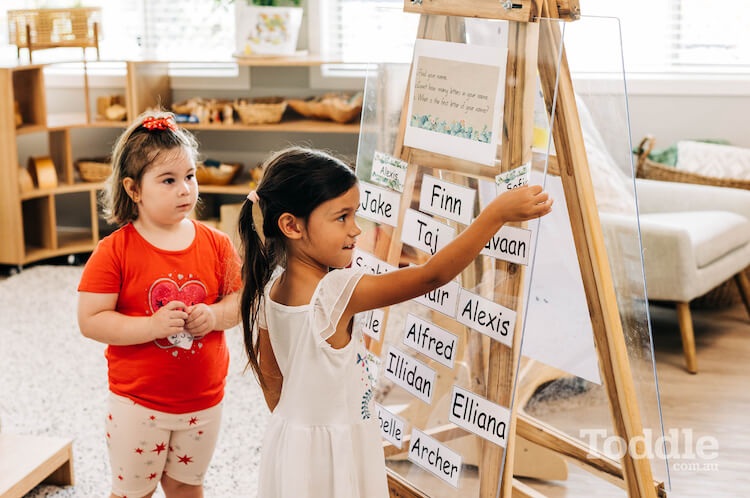Many of you might be familiar with the Abecedarian approach if you are a parent, however, if you’re not that’s okay, because we are here to share everything we know about this incredible learning approach. There are countless benefits of this learning approach which is what led us to adopting the Abecedarian approach at all our campuses. In fact, we have a qualified coach on our team, so it made sense to bring this approach into Little Scholars’ learning lives.
Did you know that a research study found children who participate in the Abecedarian approach have a brain capacity 30-40% greater? Pretty amazing right? One of the main focuses of the Abecedarian approach is language, because it gives children a way to structure their thoughts and explain their ideas, and the opportunity to express their feelings and the tools required when interacting with peers and adults. One of the obvious benefits that come with the Abecedarian approach is children gain more interaction and have a chance to widen their use and understanding of vocabulary. They also develop memory, understand number concepts, and learn shapes and colours.

There are four main elements that make up the Abecedarian approach and these are language priority, conversational reading, enriched caregiving and learning games. If you want to incorporate any of these strategies at home with your little one(s), there are many simple ways you can do this. To build on the language you use language priority or conversational reading strategies with your child. Conversational reading could be pointing out an object in a book, asking your child if they can show you that object, and then asking what it is called? Or during story time, for example, you can talk to your child and say ‘I can see a red ball on this page, can you point to the red ball? Amazing, what is this next to the ball?’
When it comes to language priority, this approach presents an opportunity to show your child what words mean, as well gives parents or educators a chance to use rich and interesting language when talking with a child. You can use numbers when you talk and play and say something like ‘I notice you’re looking at the green stem’. It is incredible what your language can tell a child, whether it’s telling a child about feelings, time, colours, shapes, textures, tastes, and honestly, so much more.
With enriched caregiving, you can simply add educational content around routine times. Bath time would be the perfect time to take on this approach because rather than just sitting and supervising, you can talk to your child about objects in the bath. This could be colours, shapes, objects they see, body parts and anything that your child can visualize.
Okay, finally there are learning games! There is a wide list of simple games you can use with your child, to teach them about ideas and concepts. These games may include letting your child match colours or shapes and colours, the list of games is endless and at Little Scholars we have a vast range of games available at all our campuses which are available to borrow for all our families.
All the strategies from the abecedarian approach work best with individual children or maybe just two children at a time – not large groups, which is why is it beneficial for families to use. At Little Scholars we send out several family booklets to promote these strategies, so if you are a parent at one of our campuses and you want to learn more about the abecedarian approach, please feel free to contact any of our wonderful educators.
To read more about why Little Scholars adopts The Abecedarian approach, go to Little Scholars adopts Abecedarian approach to increase children’s brain development (thesector.com.au)



